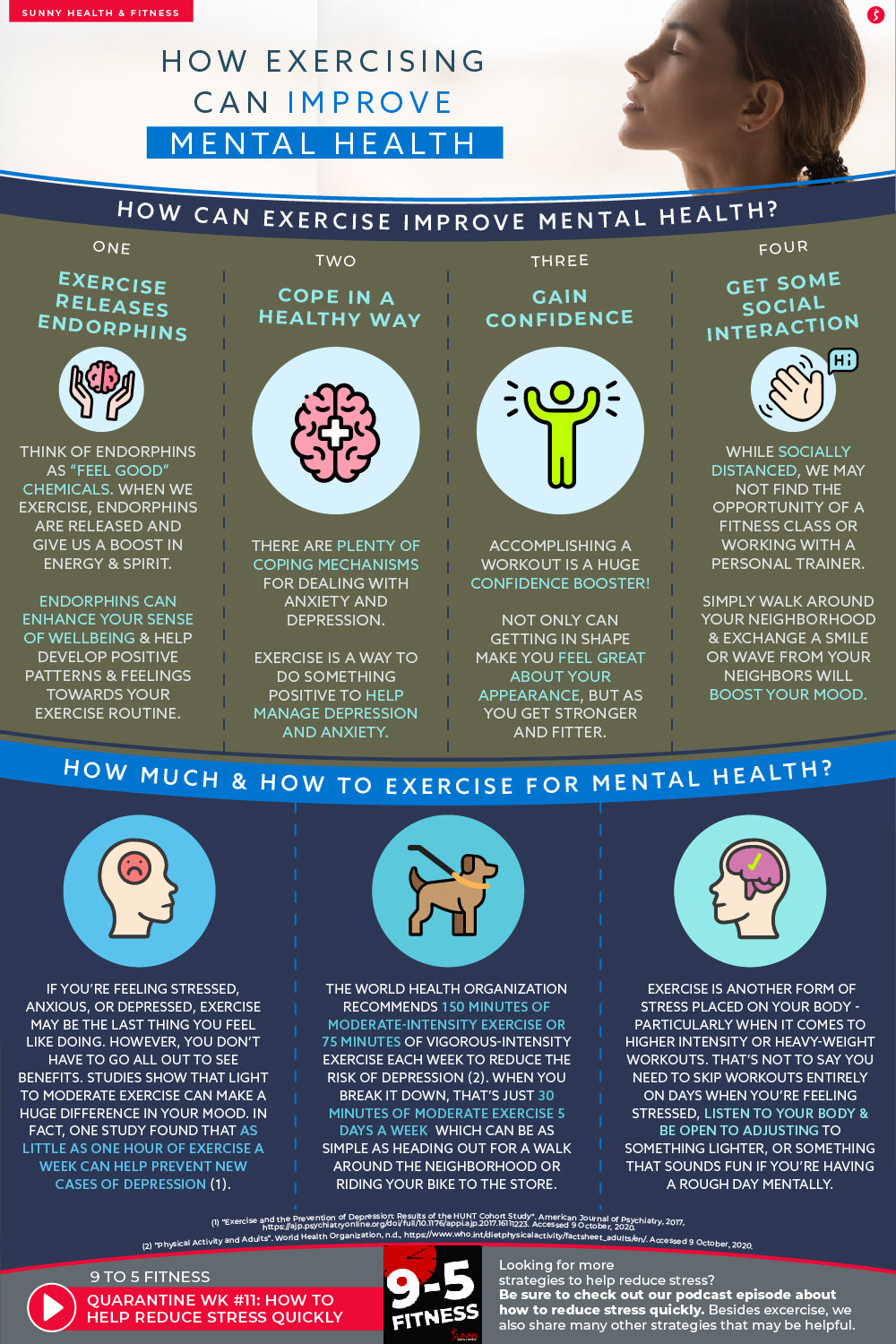We all know exercise is incredible for your physical health, but what you may not know is exercise can make a big positive impact on your mental health. Research shows that the psychological and physical benefits of exercise can help improve your mood and reduce anxiety.
How Can Exercise Improve Mental Health?
1. Exercise Releases Endorphins
Think of endorphins as “feel good” chemicals. When we exercise, endorphins are released and give us a boost in energy and spirit. Endorphins can enhance your sense of wellbeing and help develop positive patterns and feelings towards your exercise routine.
2. Cope in a Healthy Way
There are plenty of coping mechanisms for dealing with anxiety and depression. Instead, exercise is a way to do something positive to help manage depression and anxiety.
3. Gain Confidence
Accomplishing a workout is a huge confidence booster! Not only can getting in shape make you feel great about your appearance, but as you get stronger and fitter, you’ll be able to complete harder workouts than you could before with ease.
4. Get Some Social Interaction
Exercising can help increase your social interaction with others. While socially distanced, we may not find the opportunity of taking a fitness class or working with a personal trainer available to us, simply walking around your neighborhood and exchanging a smile or wave from your neighbors will boost your mood.
How Much and How to Exercise for Mental Health?
If you’re feeling stressed, anxious, or depressed, exercise may be the last thing you feel like doing. However, you don’t have to go all out to see benefits. Studies show that light to moderate exercise can make a huge difference in your mood. In fact, one study found that as little as one hour of exercise a week can help prevent new cases of depression (1).
The World Health Organization recommends 150 minutes of moderate-intensity exercise or 75 minutes of vigorous-intensity exercise each week to reduce the risk of depression (2). When you break it down, that’s just 30 minutes of moderate exercise 5 days a week, which can be as simple as heading out the door for a walk around the neighborhood or riding your bike to the store.
In the case of mental health, more or higher intensity exercise isn’t always better, and exercise isn’t always the answer. It’s important to remember that exercise is another form of stress placed on your body - particularly when it comes to higher intensity or heavy-weight workouts. That’s not to say you need to skip workouts entirely on days when you’re feeling stressed, just listen to your body and be open to adjusting your activity to something lighter, or something that sounds fun if you’re having a rough day mentally.
Looking for more strategies to help reduce stress? Be sure to check out our podcast episode about how to reduce stress quickly. Spoiler alert: exercise is one of the ideas we present, but we also share many other strategies that may be helpful for you as you aim to improve your mental health.
(1) “Exercise and the Prevention of Depression: Results of the HUNT Cohort Study”. American Journal of Psychiatry, 2017, https://ajp.psychiatryonline.org/doi/full/10.1176/appi.ajp.2017.16111223. Accessed 9 October, 2020.
(2) “Physical Activity and Adults”. World Health Organization, n.d., https://www.who.int/dietphysicalactivity/factsheet_adults/en/. Accessed 9 October, 2020.



























Add Your Name & Email
Please enter your name and email to continue.We won’t display your email publicly.